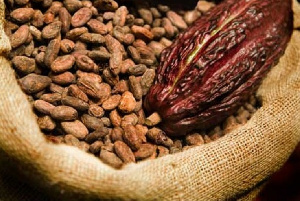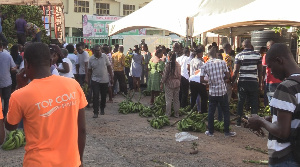COCOBOD to use parts of $200m World Bank loan to salvage disease-hit cocoa farms

The Ghana Cocoa Board (COCOBOD) is set to use parts of a secured $200m World Bank loan to rebuild diseased cocoa farms in Ghana.
Ghana’s cocoa output sharply declined to 600,000 metric tons last year from 1.048 million tons in the 2020/21 season. The decrease in cocoa production is linked to multiple factors, including the widespread impact of the cocoa swollen shoot virus on farms, the ageing of plantations, and illegal mining and smuggling activities in the sector.
Ghana is not alone in facing the challenges posed by the cocoa swollen shoot virus as other cocoa-producing regions or countries are also grappling with similar issues.
The disease has wiped off about 500,000 hectares of farmlands and reduced cocoa output from the West African nation, the world’s second-biggest cocoa producer after neighbour Ivory Coast.
In an interaction with the media, the Deputy CEO of COCOBOD, Dr Emmanuel Opoku hinted that to restore affected cocoa farms to their former glory, his outfit will use parts of the secured loan facility from the World Bank to rehabilitate plantations destroyed by the cocoa swollen shoot virus, which kills trees, negatively affecting the yearly yields.
He said, “The board will take over disease-infested farms, cut and replace sick cocoa trees, aiding growth to a fruiting stage before handing them back to farmers.”
The regulator’s deputy director mentioned that the rehabilitation process would take six years.
A total of $132.8 million of the loan was secured by the government last year and the counterpart funding will finance COCOBOD’s rehabilitation of farms and help to enhance knowledge on the virus strains, a project information document showed.
“The rehabilitation will take a minimum of five years to start getting economic production,” COCOBOD’s Emmanuel Opoku indicated.
Source: www.ghanaweb.com





